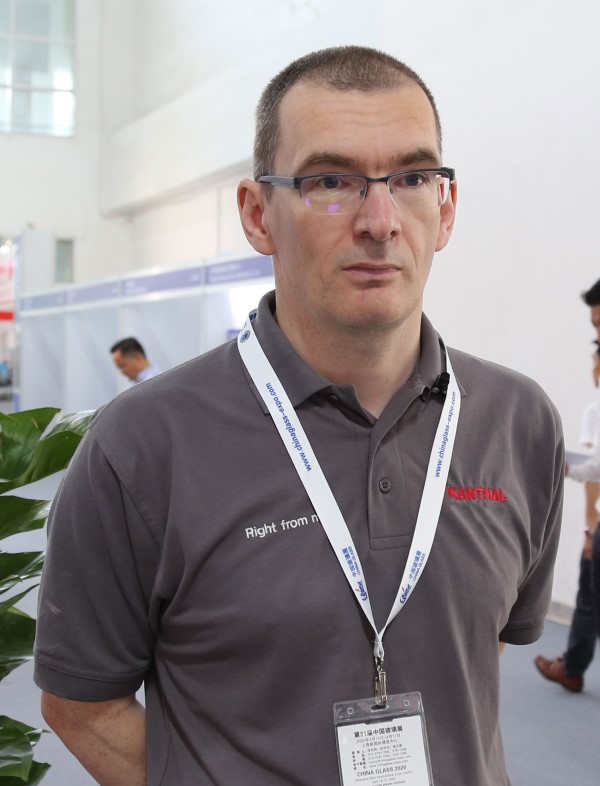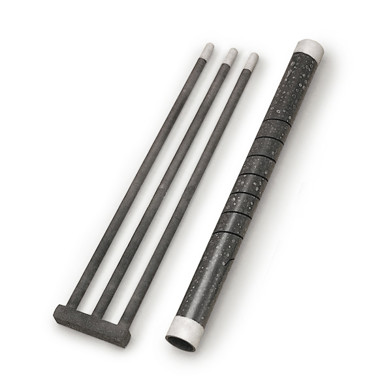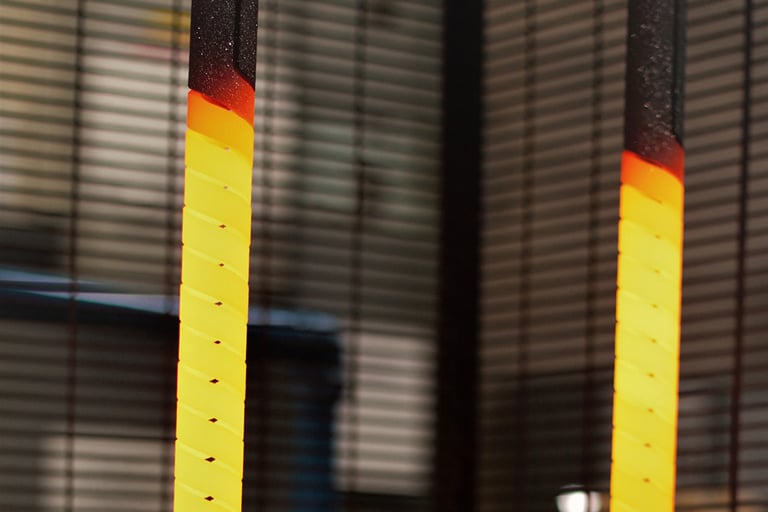Ever since its development in the 1950s, the float bath process has helped glass manufacturers achieve an exceptionally smooth finish on flat glass, saving much of the time and cost previously needed for polishing. In the float glass process, molten glass flows into the bath, on top of a bed of molten tin. As the glass floats over the tin and through the bath, silicon carbide elements (SiC) are used to control the cooling rate of the glass from around 1,050°C (1,920°F) down to around 600°C (1,100°F), while also controlling the thickness of the finished glass.
The float bath process in brief
Molten glass is poured into the float bath, on top of a bed of molten tin. The glass floats on top of the tin, and as it flows through the float bath it is gradually cooled from around 1,050°C (1,920°F) down to around 600°C (1,100°F). The process helps achieve an exceptionally smooth finish on the surface of the flat glass.
 Dean McCabe, Technology Manager, Kanthal.
Dean McCabe, Technology Manager, Kanthal.
“The whole roof of the float bath has over a thousand SiC elements installed, which are divided up into different heating zones,” explains Dean McCabe, Technology Manager at Kanthal. “The challenge is that once the float bath is built, those elements are sealed in place and need to operate around the clock for at least the next 15 years. So to ensure the longevity of the float bath, you need to ensure the longevity of these elements.”
Choosing the right heating element for your application
There are two challenges when it comes to heating elements: the nonoxidizing atmosphere – resulting from a combination of nitrogen and hydrogen – and sodium vapor from the glass. Both can lead to reactions with the silicon carbide that affect element performance and lifetimes.
To protect elements from these reactions, Kanthal offers Globar® SiC elements, which are glazed and therefore more resistant to the conditions inside the float bath. For higher-temperature float baths, which are often used for manufacture of thinner and more complex glasses, Globar® HD SiC heating elements are more resilient in these tougher conditions due to their high-density composition. When it's necessary to operate HD elements at a lower power rating in higher temperature zones, Kanthal can offer non standard-sized elements (Ø25mm) to offset the lower power rating.
In addition to supplying heating elements to new float baths, Kanthal can also supply auxiliary side heating elements that can be installed in older float baths to extend their lifetime. “If you’re a glassmaker with an older float bath, rather than demolish it and build a new one, you can potentially extend its life just by boosting the power in the side zones,” says McCabe.
Proven efficiency with decades of experience
Our elements are tried and tested out in the field where they have proven that they can last for the long term.
As well as a broad range of heating solutions, Kanthal can also help glass manufacturers with its extensive expertise. “We’ve got a lot of experience – silicon carbide elements have been used in the float process since the 1950s, and Kanthal has produced and supplied float elements from our manufacturing site in Perth, Scotland, since 1974,” says McCabe. “We understand the float bath process and our elements are tried and tested out in the field where they have proven that they can last for the long term.”
Three key benefits of Kanthal’s Globar® SiC heating elements in float bath processes
- Proven long lifetimes: Kanthal’s Globar® SiC heating elements have been used in float baths around the world, where they have proved to be reliable and durable.
- Wide range: Kanthal offers a variety of different Globar® SiC heating elements to suit different types of float bath applications, including glazed elements and high-density elements.
- Extensive expertise: Kanthal has decades of experience working with float bath processes and supplies thousands of float elements annually.
Connected products
Here you can find the Kanthal product offering
Read more
Our latest articles


